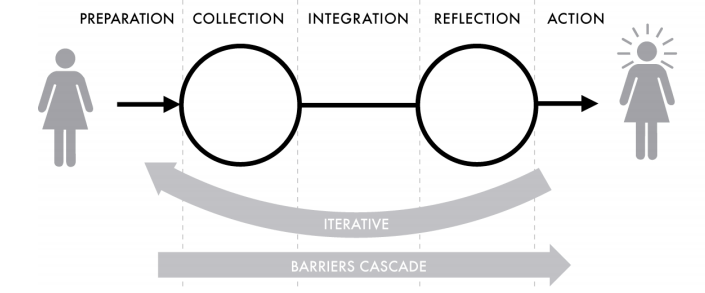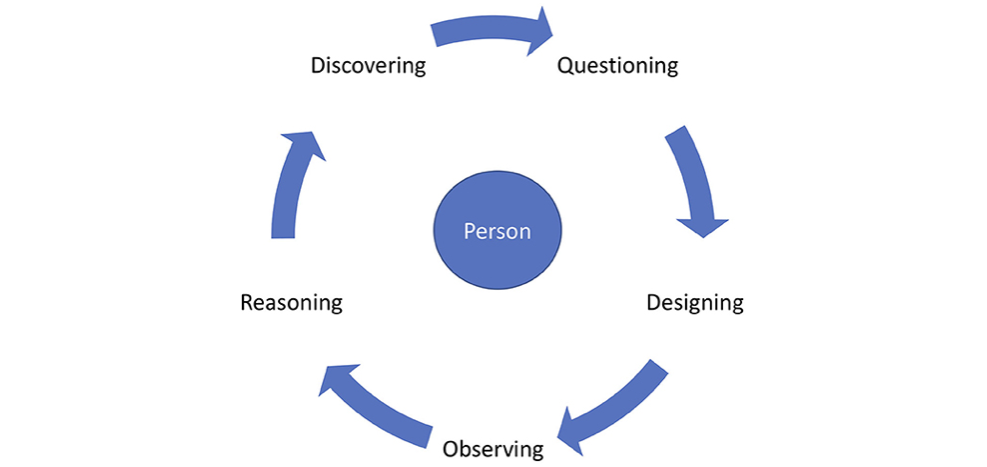A Stage-Based Model of Personal Informatics Systems
Gary Wolf
July 3, 2020
In 2010 Ian Li, Anind Dey, and Jodi Forlizzi published a prescient paper called “A Stage-Based Model of Personal Informatics Systems” based on interviews in the Quantified Self community. In tidying up my research materials after publishing a short perspective in Frontiers of Computer Science called “A Framework for Personal Science” I came across this paper and read it again. It was with strong and mixed emotions — including surprise, admiration, and not a little embarrassment — that I saw how Li had very clearly laid out a 5 stage process for self-tracking that contains rough analogs of the process cycle we define for personal science.
Here is Li’s framework:

Here is the one Martijn de Groot and I presented in our perspective:

The terms we use are not synonyms, nor are the features we choose to highlight identical, but it’s clear to me that we are addressing similar processes. The preparation stage presented by Li and his co-authors is very much like our questioning stage. Their collection, integration, and reflection stages are, taken together, roughly analogous to our designing, observing, and reasoning stages, although with a difference in emphasis. The fifth stage of Li’s model is “action,” which can be loosely mapped to the the fifth element of our framework: “discovering.”
It’s especially impressive that Li, Dey, and Forlizzi wrote this paper a full decade ago. Although the specific terms used in their model may have been influenced by the prevailing optimism about the use of wearable devices to support health through data-driven feedback to individuals, the discussion of the paper makes it clear that they understood the sources of disappointment with these promises. Their recommendations would still be salient today. For instance:
“Systems should allow users to easily change what kind of data they collect dependent on their needs and to transfer data from one system to another.”
Both the similarities and differences in our papers are interesting to me. The focus of A Stage-Based Model of Personal Informatics Systems is on design of self-tracking systems to support users’ goals, and they develop the promise and limits of these systems in detail. We describe process of personal science without reference to specific technologies of self-tracking, while recognizing that lack of appropriate instrumentation remains an important barrier. Li, Dey, and Forlizzi’s middle stages represent the relationship of users with data from apps and devices. Our middle stages describe a reflexive relationship between the person and their own experience, mediated by an intentional process of observation.
Although this results in different vocabulary and emphasis, the two approaches are largely coherent. Notwithstanding my embarrassment at not citing Li, Dey, and Forlizzi in our published perspective, I find this coherence reassuring, since our research is grounded in the same collection of self-tracking projects documented in the Quantified Self Show&Tell archive. The goal of our framework was to characterize the practice of self-research seen in the Quantified Self community so that it could be more easily recognized and supported, especially by potential allies in the healthcare system. The goal of Li’s model was to spur research and development of self-tracking systems that could better meet users’ needs. Indeed, personal science continues to struggle with lack of appropriate instrumentation. The design barriers Li, Dey, and Forlizzi identified remain a roadblock. I hope my correcting our citation oversight and drawing attention to their prior work can help renew attention to the issues they describe.


